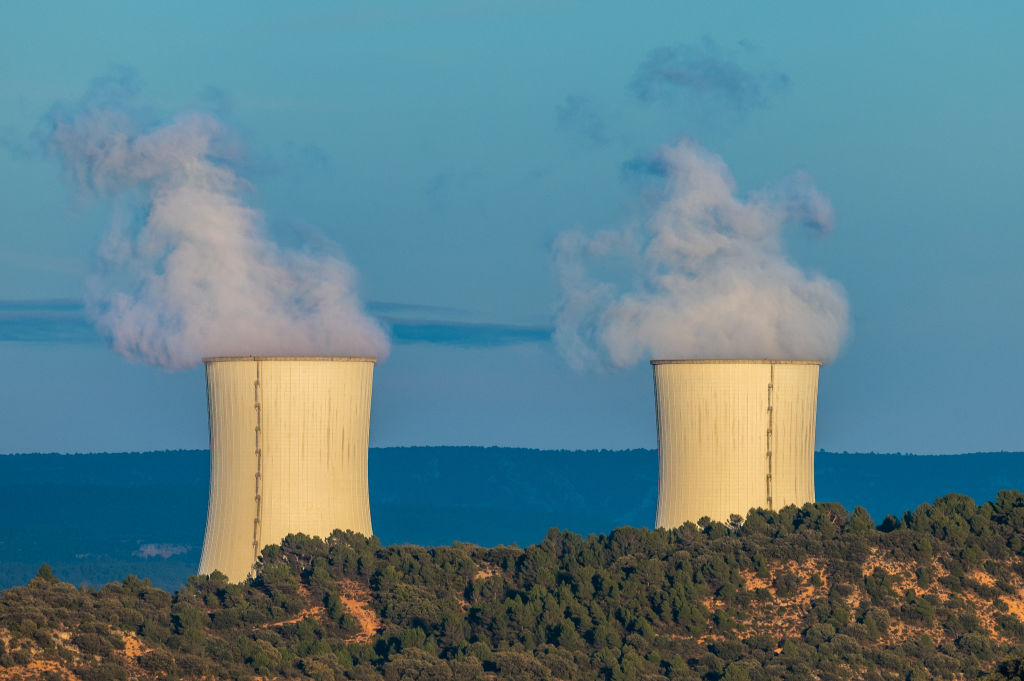MADRID – Spain is preparing to close its first nuclear power plant in 2027, reigniting a debate over the country’s energy future mere months after an April blackout plunged much of Spain and Portugal into darkness and exposed vulnerabilities in the Iberian grid.
Iberdrola, which holds a 52.7% stake in the Almaraz nuclear power plant in Extremadura – alongside Endesa (36%) and Naturgy (11%) – confirmed on Tuesday that it is preparing a formal request to the energy ministry to delay the shutdown, El País reported.
Under Spain’s 2021 National Energy and Climate Plan, the country’s five remaining nuclear stations are set to close between 2027 and 2035. Almaraz I and II are due to cease operations in November 2027 and October 2028, respectively, followed by reactors in Catalonia (Ascó I & II, Vandellós II), Valencia (Cofrentes), and Guadalajara (Trillo).
Nuclear power currently provides around 20% of Spain’s electricity, while 56.8% came from renewable sources in 2024, such as wind, solar, and hydro, according to the national grid operator Red Eléctrica.
A politicised debate
Spain has long championed a renewable-driven transition, but the April blackout reignited criticism that the grid has become too dependent on weather-based generation. Energy Minister Sara Aagesen has rejected such claims, saying there is “no evidence” that renewables were to blame. Months of investigations have so far failed to single out a clear reason.
The phase-out of nuclear energy has been part of the Socialist Party’s (PSOE) programme since the early 2000s, but the plan didn’t become policy until Prime Minister Pedro Sánchez’s first term. Despite April’s outage, the government has shown no sign of reversing course.
Junior coalition partner Sumar insists the closures must proceed. “For us, nuclear energy is expensive, polluting, and distances us from a fair and rapid eco-social transition,” a party spokesperson said.
The opposition, however, would like to continue using nuclear power. Backed by the abstention of Sánchez’s Catalan ally Junts, the centre-right Popular Party (PP) and far-right Vox secured parliamentary approval to debate a possible delay.
A fragile grid?
An energy ministry spokesperson told Euractiv Madrid that any postponement would depend on three conditions: guaranteeing radiological safety, ensuring energy supply, and avoiding higher costs for consumers.
According to Gonzalo García-Fernández, a nuclear-energy specialist at Madrid’s Polytechnic University, these conditions have already been met. “The problem,” he said, “is that Spain’s nuclear debate is completely politicised.”
García-Fernández describes nuclear energy as a stable, low-carbon power source that complements renewables by providing constant output.
“It does not depend on whether the sun shines or the wind blows, and it produces minimal, well-managed waste,” he said.
The ministry, however, insists that renewables will fully replace nuclear generation without raising costs. Its projections foresee clean energy accounting for 81% of total electricity production by 2030.
Nevertheless, prioritising the switch-off of nuclear reactors could be counterproductive from a climate perspective. New wind turbines and solar panels would cover the gap left by zero-emission nuclear energy, rather than replacing power plants that run on polluting fossil fuels.
Diego Rodríguez, an energy economist at the economic think tank FEDEA, warned that Spain lacks sufficient battery-storage capacity and renewable infrastructure to meet its targets without risking price volatility or supply gaps.
“The government’s timeline is optimistic,” he said.
The National Commission for Markets and Competition (CNMC) on Monday approved “emergency” measures to prevent further instability in the grid.
Across the sector – from nuclear operators to renewable developers – consensus is growing that caution is warranted.
“In the current circumstances,” Rodríguez concluded, “the sensible thing to do is to wait.”
Stefano Porciello contributed to reporting
(cs, cm)

